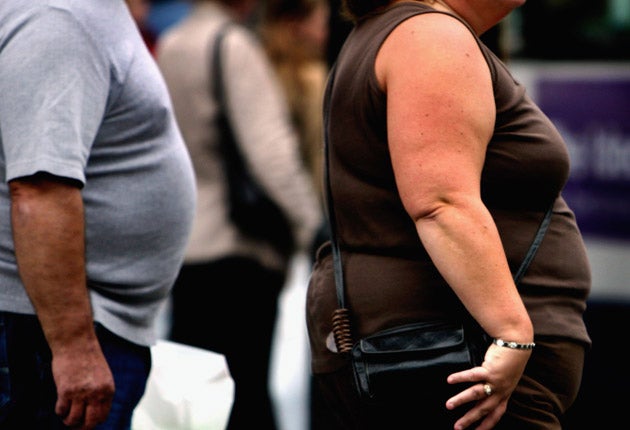'The greatest public health crisis affecting the UK': Doctors demand curbs on fizzy drinks and fast food

Your support helps us to tell the story
From reproductive rights to climate change to Big Tech, The Independent is on the ground when the story is developing. Whether it's investigating the financials of Elon Musk's pro-Trump PAC or producing our latest documentary, 'The A Word', which shines a light on the American women fighting for reproductive rights, we know how important it is to parse out the facts from the messaging.
At such a critical moment in US history, we need reporters on the ground. Your donation allows us to keep sending journalists to speak to both sides of the story.
The Independent is trusted by Americans across the entire political spectrum. And unlike many other quality news outlets, we choose not to lock Americans out of our reporting and analysis with paywalls. We believe quality journalism should be available to everyone, paid for by those who can afford it.
Your support makes all the difference.A tax on fizzy drinks, a limit on fast food outlets near schools and child nutritional advice for new parents are urgently required to help address spiralling levels of obesity, doctors have demanded.
The Academy of Medical Royal Colleges (AMRC), which represents nearly every doctor in the UK, said obesity was "the greatest public health crisis affecting the UK" and warned ministers, councils, the NHS and food organisations needed to take action.
The AMRC's report drew parallels with the campaign against smoking, saying: "Just as the challenges of persuading society that the deeply embedded habit of smoking was against its better interests, changing how we eat is now a matter of necessity."
The report criticised the present and previous governments for insufficient and ineffective attempts to tackle the obesity problem and said doctors from across the medical profession are united in their concerns.
The need for action is urgent to break the cycle of "generation after generation falling victim to obesity-related illnesses and death," it added.
Britain is one of the most obese nations in the world, with one in four adults overweight, figures say, and the number is expected to double by 2050.
Doctors are calling for society "as a whole" to act before the obesity crisis becomes irreversible, fearing the situation will otherwise become "unresolvable".
The AMRC put forward 10 recommendations to end the UK being "the fat man of Europe". These include:
* Taxes of 20% on sugary drinks for at least a year;
* Banning the advertising of foods high in saturated fat, sugar and salt before 9pm;
* and leisure centres;
* NHS staff to talk to overweight patients at every appointment about their eating and exercise habits;
* Advice for new parents on how to feed their children properly;
* All schools to serve healthy food in their kitchens;
* A ban on junk food an vending machines in hospital premises and hospitals to apply the same nutritional standards for patients as those in state schools in England;
* £300m to be spent over the next three years on weight management programmes;
* More surgery for the severely obese, to help those at risk of dying.
* Food labels to include calorie information for children.
Professor Terence Stephenson, the chairman of the AMRC, told the BBC that while there was no "silver bullet" for tackling obesity, the eating culture needs changing to make it easier for people to make healthy decisions.
"I choose what I eat or whether I smoke, what people have told us is they want help to swim with the tide rather than against the current to make the healthy choice the easy one," he said.
He added: "Doctors are often accused of playing the nanny state, we didn't hear from a single person who said they liked being overweight, everybody we met wanted help from the state and society.
"If we didn't have things like this we wouldn't have speed limits that save lives, we wouldn't have drink-driving limits that save lives.
"There's a host of things that society and state does to help us live long, healthy fulfilling lives and we're just suggesting something similar."
The soft drinks industry rejected the idea that a tax would help.
Gavin Partington, director-general of the British Soft Drinks Association, said: "We share the recognition that obesity is a major public health priority but reject the idea that a tax on soft drinks, which contribute just 2% of the total calories in the average diet, is going to address a problem which is about overall diet and levels of activity.
"Over the last 10 years, the consumption of soft drinks containing added sugar has fallen by 9% while the incidence of obesity has been increasing, and 61% of soft drinks now contain no added sugar."
He added: "Soft drinks companies are also committing to further, voluntary action as part of the Government's Responsibility Deal Calorie Reduction Pledge.
"Don't forget that there already is a 20% tax on soft drinks, 10p out of every 60p can of drink already goes to the Government thanks to VAT.
"Putting up taxes even further will put pressure on people's purses at a time when they can ill afford it."
Independent partners: Health insurance premiums from 70p a day. Get a quote or call 01202 544 095
Join our commenting forum
Join thought-provoking conversations, follow other Independent readers and see their replies
Comments